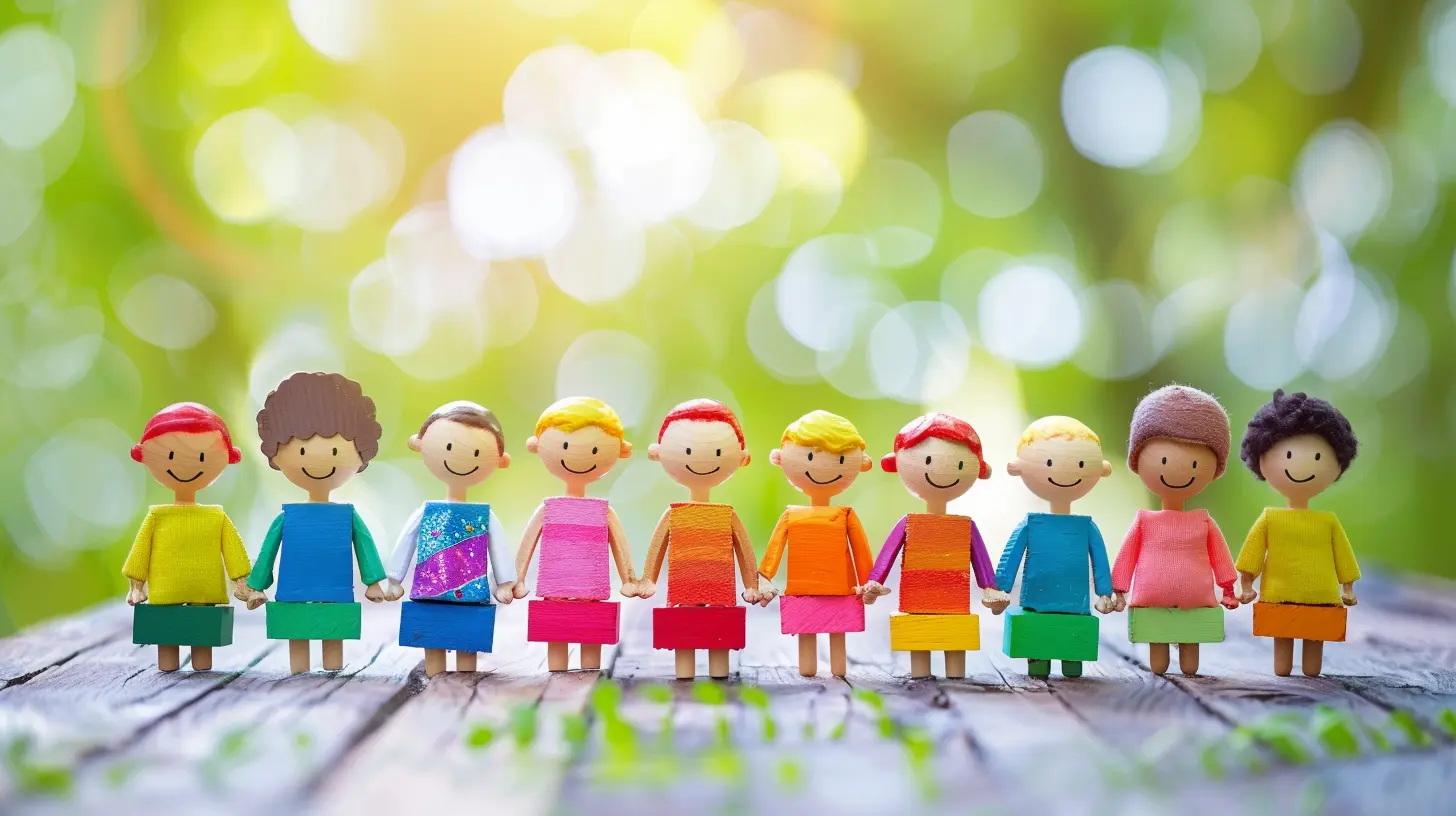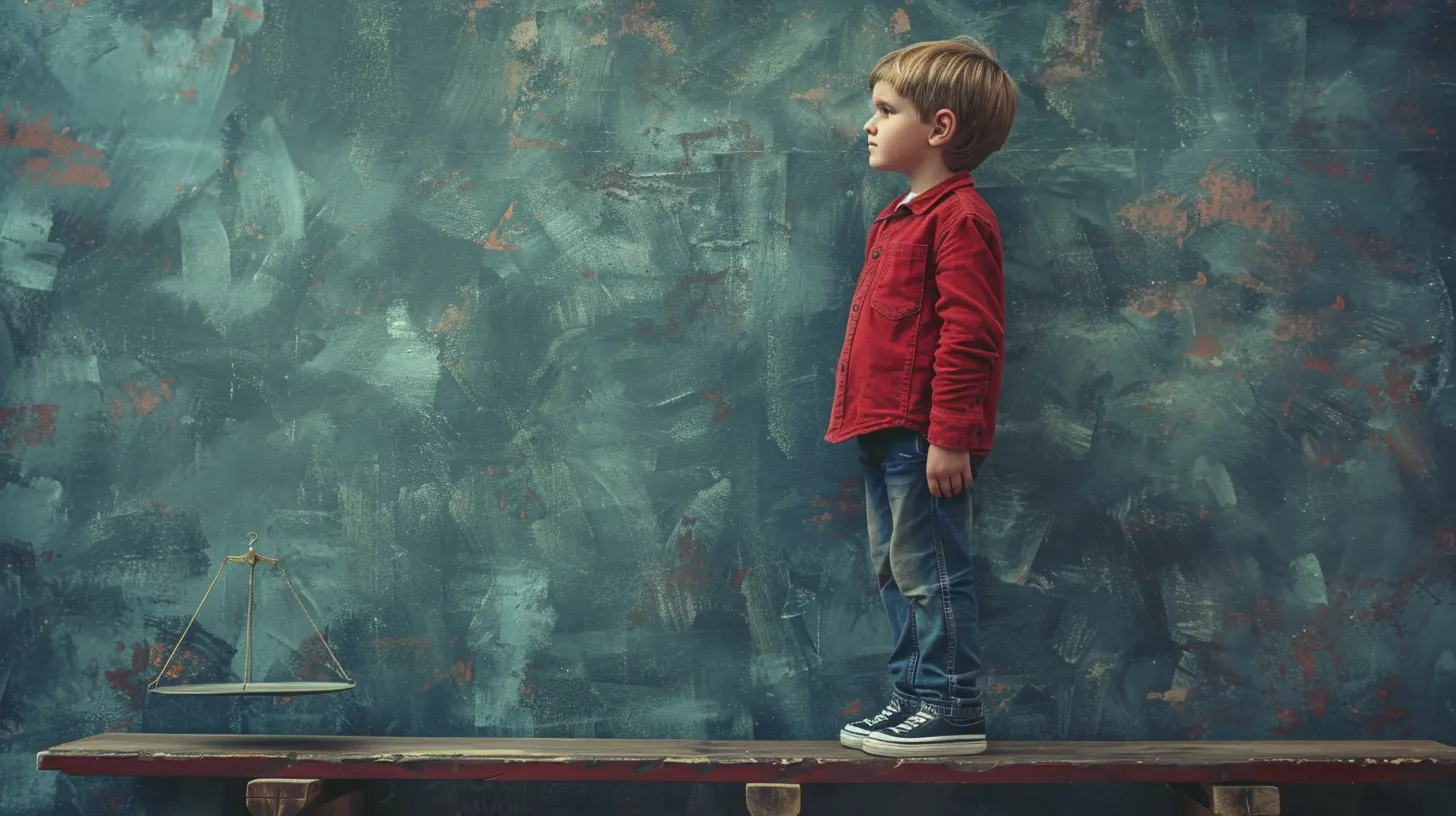Understanding Your Child's Developmental Stage for Teaching Responsibility
1 November 2025
Parenting is like trying to build a house in the middle of a storm — rewarding, beautiful, but oh, so challenging. And one of the biggest puzzles we face as parents? Teaching our kids responsibility. We want to raise kind, confident humans who pick up after themselves, help others, and make good choices — not because we told them to, but because they know it’s the right thing to do.
But here’s the secret sauce: You can't teach responsibility the same way to a toddler, a 9-year-old, and a teenager. It’s all about understanding where your child is developmentally. When you can meet them where they are — emotionally, mentally, and even physically — the whole process becomes less about nagging and more about nurturing.
Let’s dive deep into this together, parent-to-parent. You’re not alone on this journey.
Why Development Matters in Teaching Responsibility
Every child grows at their own pace. But their development follows general stages, like stepping stones across a river. If we expect too much too soon, or don’t expect enough when they’re ready, we either frustrate them... or miss big teaching moments.Think about it — we wouldn’t ask a toddler to drive a car, right? Sounds ridiculous. But sometimes, we unfairly expect young kids to behave like mini-adults. Understanding your child's developmental stage can help you set realistic expectations that build confidence and character.
The Early Years (Ages 2–5): Exploring Independence
What’s Going On Developmentally?
At this stage, kids are learning about autonomy. Remember the “I do it!” phase? Frustrating but so important. They're learning they are separate beings with their own ideas and desires.Their brains are still under construction — impulse control is weak, and they live very much in the moment. But they also have huge hearts and a desire to please you.
How to Encourage Responsibility
- Start small: Let them help put their toys away or feed the pet with you. Celebrate their efforts — even if it’s messy.- Routine is key: Kids this age thrive on predictability. Simple routines for cleaning up, brushing teeth, or helping set the table start planting seeds of responsibility.
- Use visual cues: Charts with pictures can be super helpful. A “morning routine” chart with pics of brushing teeth, getting dressed, and making the bed gives them ownership.
Teaching Tips
Don’t expect perfection. The goal isn’t to have a spotless living room but to praise the effort. Give lots of positive feedback, and resist the urge to redo their work. Let them feel proud.> Think of it as watering a seed. You’re not going to see a tree overnight, but the roots are growing.
The Middle Childhood Years (Ages 6–9): Building Habits and Confidence
What’s Going On Developmentally?
Kids at this age start understanding consequences and can follow multi-step directions (most of the time). They crave approval and can take pride in doing things “the right way.” Their brains are better at problem-solving, and they can start making more independent choices.How to Encourage Responsibility
- Give them real tasks: Think beyond chores — let them pack their own lunch, choose their outfit, or plan a family meal.- Introduce natural consequences: Forgot homework? Let them feel that sting. It’s tough, but it teaches more than lectures ever could.
- Be consistent: If they’re responsible for a job, trust them to do it. Resist micromanaging every move.
Teaching Tips
This is the golden time for shaping habits. If you set clear expectations and reinforce them consistently, you’re laying the groundwork for long-term accountability.> It’s like teaching them to ride a bike. You run alongside them, but eventually, you have to let go — and yes, there may be a fall or two.
The Tweens (Ages 10–12): Expanding Responsibility with Freedom
What’s Going On Developmentally?
Tweens are starting to think more abstractly. They’re becoming more aware of how their actions affect others and are starting to question rules (hello, eye rolls!). They want independence but still need structure.Peer influence starts to become a huge factor — and their desire to fit in can shape behavior more than anything you say.
How to Encourage Responsibility
- Give them choices: Let them decide how to spend their allowance or manage their time — then talk through the results.- Talk through mistakes: Use poor decisions as chances to reflect together. Not every mistake needs a punishment; sometimes a conversation is enough.
- Model responsibility: They’re watching you. Show them how you meet obligations, admit mistakes, and juggle priorities.
Teaching Tips
This stage is all about guiding rather than instructing. You’re the coach now — not just the boss. Involve them in family decisions when appropriate. Let them feel heard.> Parenting a tween is like teaching someone to swim. You’re still in the pool, but you're giving them more room to move without floaties.
The Teen Years (Ages 13–18): Responsibility with Real-World Stakes
What’s Going On Developmentally?
Teen brains are wild places. Their reasoning and emotional centers are still maturing, but they feel like adults — and want to BE treated like one. They’re developing strong opinions, values, and identities.But they still need guidance. And yes, they still care what you think — even if they act like they don’t.
How to Encourage Responsibility
- Let them lead: Hand over more control — managing their schedule, school workload, and part-time jobs. Offer support, not control.- Open up communication: Regular check-ins (without judgment) are key. Try questions like, “What’s something you’re proud of this week?” or “What do you wish you were doing better?”
- Set boundaries with flexibility: Responsibility means freedom and accountability. If they miss curfew, talk through consequences beforehand.
Teaching Tips
This is the phase where the seeds you planted years ago start blossoming — or showing signs that they need more care. And that’s okay. Keep showing up, stay consistent, and stay connected.> Think of yourself as the co-pilot now. You're letting them fly, but you’re still there with the map, steering when necessary.
How to Adjust Your Expectations Without Lowering Standards
Teaching responsibility isn’t about throwing in the towel. It’s about adjusting your expectations to match your child's developmental capacity — while still holding a high bar for what they can achieve.Ask yourself:
- Is this expectation reasonable for my child’s age?
- Am I offering the support they need to succeed?
- Have I clearly explained what's expected — and why it matters?
Sometimes we’re so focused on the results — the clean room, the finished homework — that we forget the process is the real prize. That’s where character is shaped.
Encourage, Don’t Enable
It’s tempting to swoop in and rescue our kids when they’re struggling. But too much help can actually hurt. It sends the message, “You can't do this without me.”Let them wrestle a bit. Let them fail — with you cheering them on from the sidelines. That’s how growth happens.
> Responsibility is like a muscle. It gets stronger each time it’s used.
Celebrate Every Win (Even the Small Ones)
Did your 5-year-old put her shoes away without being asked? High five! Did your teen admit they forgot an assignment — and owned up to it? That’s worth a celebration.Responsibility grows when kids feel proud of their actions. It’s not just about obedience — it’s about internal motivation. Praise the effort, not just the outcome.
Final Thoughts: You Got This
Parenting isn’t about being perfect. It’s about being present. Understanding your child’s developmental stage gives you a roadmap — but it’s your consistent love, patience, and guidance that truly teaches responsibility.So, the next time you find yourself knee-deep in toys, dirty socks, or messy emotions, take a breath. Remember, you’re not just cleaning up a mess — you’re raising a human. And that’s the most responsible job of all.
all images in this post were generated using AI tools
Category:
Teaching ResponsibilityAuthor:

Liam Huffman
Discussion
rate this article
1 comments
Haze Mendez
Empower growth: responsibility thrives when understanding meets guidance.
November 16, 2025 at 5:07 AM

Liam Huffman
Thank you! Indeed, combining understanding with guidance is key to nurturing responsibility in children.


